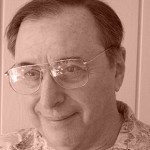
Meet the Expert: George Kent
George Kent, PhD, is a Professor Emeritus, Department of Political Science, at the University of Hawaii. Dr. Kent’s research has centered on human rights, international relations, peace, development, and environmental issues, with a special focus on nutrition and children. To get to know Dr. Kent, we asked him a few questions.
Tell us something interesting about yourself.
I retired from the University of Hawaii’s political science department in 2010, after 40.5 years there. I never formally studied that topic. My undergraduate degree is in electrical engineering and my graduate degrees are in communications. In the 1960s I suddenly became a professor of international relations at San Francisco State when I got a cold call from them inviting me to join them as a professor. I suddenly became a political scientist when I got a similar unsolicited call from the University of Hawaii in 1970.
If you could have one superpower what would it be?
I would end hunger in the world.
What’s the last good book you read?
I do little reading. Too busy writing. And my eyes are old.
What are three words that best describe you?
Not too bad.
What do you like to do in your free time?
Free time? Now that I’ve retired I don’t know how I ever had time to go to work. When I am not tethered to the computer I walk or chat with friends or . . . go back to the computer.
What are you most passionate about?
The problem of hunger in the world – because it is so wrong and so unnecessary. If we paid attention we would recognize that hunger causes more human misery than anything else. If you look at the life-years lost due to various forms of malnutrition, it makes things like warfare or epidemics or car accidents look trivial.
What are you currently working on?
I am trying to get people who work on the hunger issue to understand that simple technical remedies like increasing food production are not going to solve the problem. We have to see the importance of people’s caring for one another’s well-being, and find ways to increase the caring.



























